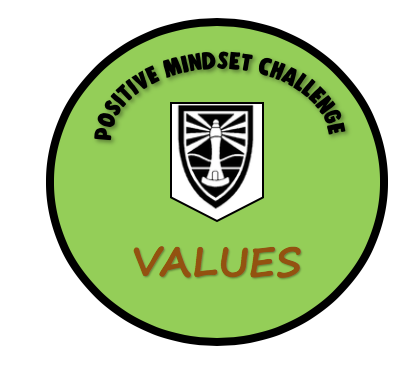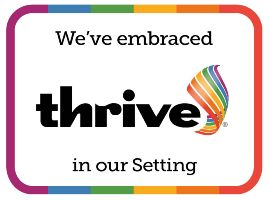Positive Mindset Challenge 4: British Values
Can you collect them all?
The purpose of the Positive Mindset Challenges
- To encourage our children to increase the depth of their understanding in each of the focused areas
- To motivate and reward the children's efforts
- To provide our parents/carers an opportunity to engage in their child's learning
How the Positive Mindset Challenges work
Firstly, it is important to point out that these challenges are totally optional. There is no requirement for children to take part.
Each week in the first half of spring, all of our pupils (from Reception to Year 6) will be focusing on a different strand within our Positive Mindset lessons. The week will begin with a whole school assembly to introduce the topic and will then be followed up in class at some point that week where further discussions and tasks will enhance their understanding of the virtue. The children will also be provided with key phrases to help praise, guide or correct the children's displayed behaviour.
At the end of the week, class teachers will set the optional Positive Mindset Challenge of the week for them to complete in their own time. This will be shared with you through the website and in your child's home learning book. Once completed, children are asked to hand these into their teacher for Mr Lewis to look at and reward them with a positive mindset badge.
These awards are not only based on the actual physical work produced but also to acknowledge the extra thought and effort demonstrated by the pupils.
Positive Mindset Challenge 4:
British Values

- Reception Challenge: Dinner Time. The children's challenge is to use the table mat template provided by your teachers (or create your own) and draw pictures of themselves being polite and courteous at dinnertime. They should have a go at writing a few polite words too. For example, they could draw themselves: washing their hands before dinner; using their cutlery to eat; politely asking for a drink, sitting at the table or saying thank you for their dinner.
- Year 1 Challenge: Board game. The children will be creating their own board game and rules to go with it. They can either use the template provided by their teachers or can create their own board game design on a separate piece of paper. The main aim of this activity is for them to think about the rules they will create and the importance of having these rules. The theme for the game can be on anything they want - school, space, pets - anything that interests them!
- Year 2 Challenge: Class portrait. The children will create two pictures of their class. The first picture must be created using only one colour pencil or pen. For the second picture they can use as many different coloured pencils or pens as they like, as well as other materials. Remind the children to include their teachers in the picture and to write a few sentences about what makes their class interesting.
- Year 3 Challenge: Class rules and promises. On the 'my class rules' sheet children should create a list of their own four rules for their class and underneath give an example of what they class would be like if we did not follow that rule. They should then create their own class promise using the 'my class promise' sheet as an example. They will write five sentences sharing some of the key things they think are important their class and Glebe.Encourage them to think about the positive things they want to see others practising. Discuss with your child some of the other positive mindset challenges - they may wish to include these in their lists.
- Year 4 Challenge: Freedom of choice. Teachers will provide the children with a 'freedom of choice' sheet. The first part of the activity involves them researching the plight of children who do not have freedom of choice because of poverty. There are many sources that could be used for this. For example, charity website such. as UNICEF, OXFAM, Save the children, The Red Cross. From their research, the children should write a short paragraph explaining where children don't have the same freedoms and why. The second part of the activity asks the children to write about something they are able to choose to do that some children in the world would not have the choice to do. How does this make them feel?
- Year 5 and 6 Challenge: My family cultural portrait. Teachers will provide a sheet and A3 paper. The children will create a collage about themselves, their family and their cultural background. It can include drawings, family photos and images from magazines or the internet. Encourage them to imagine that they have to share their family and culture with someone from a different place or someone who does not know them. They should write a paragraph describing their family and culture.



